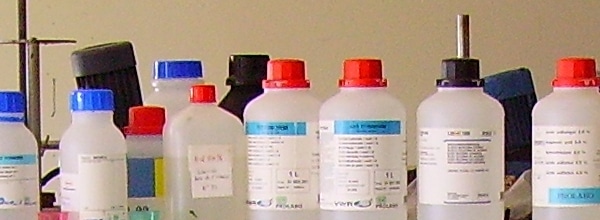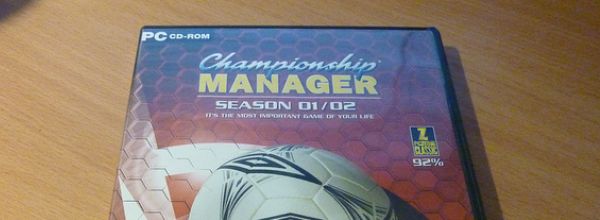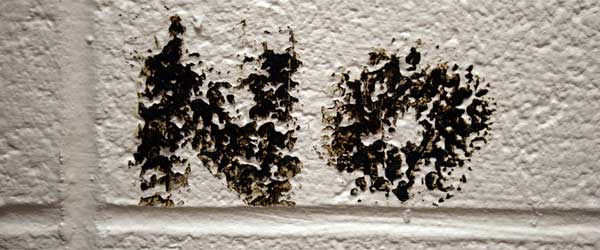10 Tips For Organizing Your Lab Book
It’s easy to let organizing your lab book slide down your list of priorities. Read our guide to easy ways to keep your lab book up to date and organized.
Join Us
Sign up for our feature-packed newsletter today to ensure you get the latest expert help and advice to level up your lab work.

It’s easy to let organizing your lab book slide down your list of priorities. Read our guide to easy ways to keep your lab book up to date and organized.

Spreadsheets for managing chemicals? That’s not the right way to organize your lab. This article explains a better way—registration systems. Learn what they are and how they offer a huge productivity boost on their own and when integrated with electronic lab notebooks.

Choosing the right system for scientific research involves understanding your specific needs, personal values, and desired outcomes. Learn practical steps to selecting the ideal system for reliable and desirable results.

Do you hate it when you get into the lab ready to get stuff done and then find yourself spending the first 45 minutes of the day hunting for what you need? We do too. So read these 10 tips to organize your lab space for better productivity and spend less time hunting for stuff and more time doing research.

It pays dividends to think creatively about your research. Here are 8 tips to supercharge creativity in science and ensure a great environment to help your imagination flourish.

Discover how embracing simplicity in science can make you a more effective researcher while reducing your workload.

Performing successful experiments is a crucial skill for scientists. We’ve rounded up our top tips to help you achieve perfect procedures!

Working away from the bench doesn’t mean your research has to suffer. Read more on how to take advantage of time away from the lab so you can return better than ever.

Want to organize and tidy your lab? Read this detailed guide to a clutter-free and stress-free lab.

Are you facing working from home? Find out how to prepare and stay productive.

Have you got a plasmid that others are begging to use? Perhaps your cell line is in high demand? We’ll show how using a repository can take the hassle out of sharing your reagents.

Working from home but don’t have a garage lab? We’ve got 10 ideas to keep you productive while you’re working away from the bench.

Reproducibility is a cornerstone of scientific research and your results need to be reproducible not only by yourself but also by others, both in and outside of your laboratory. This reproducibility is key for validation of your results as well as to further expand on the knowledge gained during the experiment. In order to accurately…

Picture it: 6:00 pm on a Friday night. You have one or more experiments running. Maybe you’re doing a western blot, or following a staining protocol for an immunohistochemistry experiment, or just labeling tubes. But rather than working on active experiments, you’re helplessly searching through the lab drawer for that one pair of forceps, that…

During my first year as a graduate student, one of the earliest pieces of advice that I received from a senior student in the lab was to keep detailed protocols. In fact, she had a folder of her own protocols, all of them extremely detailed and riddled with notes. When she showed me how to…

Starting a PhD program is both an exciting time as well and a challenging one… One of the main things that keeps most PhD students up nights, is rethinking their steps in the lab during the day. Did I do that one thing I may not have? Is that one reagent back in the fridge?…

An academic lab is a unique working environment. Lab members are expected to take responsibility for their own research projects and perform the work quickly and efficiently. However, unlike an industrial or corporate setting, there are often no clearly defined management structures. This means that when it comes to communal equipment, reagents and resources, individual…
Stuck in a rut? Here are some useful nuggets you could implement in your day-to-day science life.
Unless you are one of those rare breeds that do organization naturally, setting a system in place to archive your experiments takes practice and perseverance. It’s hard to imagine when you are doing an experiment for the 100th time that you will ever forget how to do it; but a year down the line, when…

Lab work, as we are all aware, comes with many pressures: one of which is productivity. You want to generate as much quality data as possible to meet publication deadlines or perhaps the elusive thesis. Sometimes it may feel like hours spent in the lab don’t match the amount of data produced: for some this…

After ten years of postdoctoral research there is one important piece of advice I would give to anyone embarking on a research career: Spend as much time managing your data as you do generating it Take time at the beginning of each project to organize how you will record what you are doing day-to-day. The…

“You think you know, but you don’t know and you never will, okay?” was the response an irate Jim Mora, head coach of the New Orleans Saints, gave to an unwitting journalist questioning his management – his point being that unless you’ve actually been in a professional sports team, you will never know what it’s…

Having kids changes your life. I should know, I have 5 little F1’s running around. Your life is thrown into chaos the minute you hear that first cry. And it isn’t only your personal life that changes. Eventually you have to figure out how to fold your new parenting responsibilities into your lab life….

No matter how efficient you are, it’s always possible to improve your productivity and improving your productivity means that you get more of the rewards you are trying to obtain: results, publications… or dare I say it, money. Here are 20 ways to improve your productivity. Some are focussed toward improving the productivity of bench…

Power nap anyone? Depending on how long your commute is, and what type of transport you use, you could make your commute useful. If you are taking public transport, you can use that time to answer those emails you don’t have time to get to at the office/lab, or to catch up on reading some…

Most of us hate cleaning and are often hard pressed to find time to clean our homes, never mind our laboratory space. However, an annual spring clean and maintenance of a regular cleaning rota/regime will contribute to an efficient, organized and harmonious lab environment. This is increasingly important in communal lab spaces where multiple staff…
Over the years, I have noticed that laboratory environments are just as fragile and sensitive as the experiments performed within. If permitted, the lab can deteriorate into a chaotic mess within only a few days. That is why it is crucial to establish an organizational system in the lab. Here are a few of my…

Reagents are expensive and are a significant cost to your lab. You know what to do to keep others from stealing your reagents. But contamination, improper storage and “lost” batches will all eat into your stock of reagents, bump up your consumables costs and waste your precious time. Unless you take steps to prevent them, that…

Whenever you make up a solution or use a purchased reagent in the lab, you trust the work of a whole army of people and equipment. If any one of those links in the chain has a technical problem or makes a mistake, then your reagent might turn out to be faulty. And that can…

The correct documentation and storage of your laboratory samples may be a tedious process, but it will make your life a lot easier in the long run. The last thing any scientist wants when trying to complete a key last experiment for a publication is not being able to find or identify a critical sample….

What comes to mind when you think of good laboratory practices? To many, good laboratory practices describes the best conduct while working at the bench. The laboratory is a complex environment and understanding how small, seemingly innocuous, actions can have such a huge impact on the outcome of an experiment will help you to ensure…

How often have you torn apart the lab looking for the reagent you need right now for some thawing samples? That reagent which you (possibly) ordered a week ago and which (maybe) came in yesterday? If your answer isn’t “just once in my entire career,” please read on! I will outline four steps to setup…

Following closely on the heels of Cristy’s article “How to Clean a Waterbath”, I’d like to take a moment to rant about a few other hated (and carefully avoided) lab tasks. Here are my top ten LEAST favorite things to do in the lab: What’s YOUR most hated lab task?

Everybody is different when it comes to how they like to run their work space. Some people just find a space in the lab and work wherever there’s room, sharing their tips and pipettes, while others like to have a designated area to do their lab work in, with their own equipment. Personally, I much…

Everyone loves a bargain! These days, more and more labs need to stretch every dollar as far as it will go. So how do you keep your lab well-supplied on a tight budget? To get a better deal on products you might choose to shop around, buy in bulk or haggle with vendors. However, if…

Good organization is essential for keeping a lab in good running order. Databases of strains, plasmids, primers, and stocks are useful for keeping track of your materials, and allow your work to be continued easily after you’ve left the lab. In this article, I’ll talk about a few tools in Microsoft Excel that will make…

Many PhD students conducting their research are not aware of the fact that conducting autonomous research is project management. This assumption is realized by most students only after graduation or in the last year of their studies (a webinar discussing project management will be held this coming May). Because being a technician and a project…

I write regularly about topics related to electronic lab notebooks over on The electronic lab notebook blog. Nick thought it might be interesting for me to do an occasional post on electronic lab notebooks for Bitesize Bio, so here goes! I thought I’d start with a comparison of electronic lab notebooks with wikis and Google…

Research is a challenging field that demands a tremendous amount of skill and dedication. We are required to be creative but logical, independent but team players, innovative but grounded, proliferative but focused. This balancing act requires not only a very broad set of skills and talents, but also the ability to manage it all with…

The release of the iPad this week may bring the long-expected replacement of the paper-bound lab notebook by electronic notebooks one step closer. But are scientists, particularly PIs, comfortable with electronic lab notebooks? The rise of the tabletsThe concept of an electronic lab notebook isn’t anything new, and even the idea of implementing it on…

The eBook with top tips from our Researcher community.